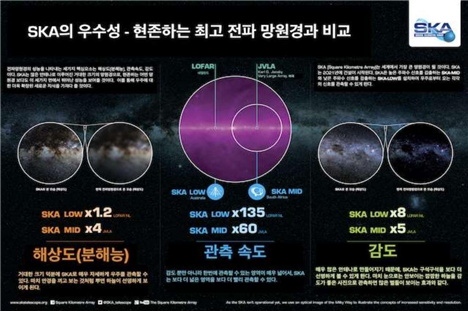‘Participation in the ‘Giant Radio Telescope’ Project
2.9 trillion won investment in extraterrestrial life search,

Overview of the International Giant Radio Telescope (SKA). Photo courtesy of the Space Agency,
, ‘[Seoul Economy] ‘,
,
, ‘South Korea is planning to participate in the world’s largest international joint radio telescope project, which aims to explore the origins of the universe and search for extraterrestrial life with outstanding performance.’,
,
, ‘The Space Agency announced on the 17th that it will officially express its intention to participate in the International Giant Radio Telescope (SKA) project at a meeting of the ‘International Giant Radio Telescope Observatory (SKAO)’ held in Zurich, Switzerland, on the 18th.’,
,
, ‘The SKA is a radio telescope project with a budget of 2.9 trillion won, to be constructed in Australia and South Africa by 2029. It boasts superior resolution, observation speed, and sensitivity compared to existing radio telescopes, enabling the detection of faint radio signals from the early universe. This is expected to provide answers to fundamental questions about the origins of the universe and the search for extraterrestrial life. A total of 14 countries, including the UK, Germany, China, and India, are participating, with South Korea and Japan planning to join.’,
,
, ‘The Space Agency aims to attain full membership to secure the participation of domestic industries and priority access to SKA data. Following the official expression of intent to participate, procedural steps will be carried out both domestically and internationally.’,
,
, ‘Kang Kyung-in, Director of Space Science Exploration at the Space Agency, stated, “Through this participation, the Space Agency aims to actively support domestic astronomers in creating world-class research achievements and advancing South Korea as a space power. We hope that research utilizing SKA data will contribute to solving modern astronomy’s core challenges, such as the origin of the universe and the search for extraterrestrial life.”’,
,
,

